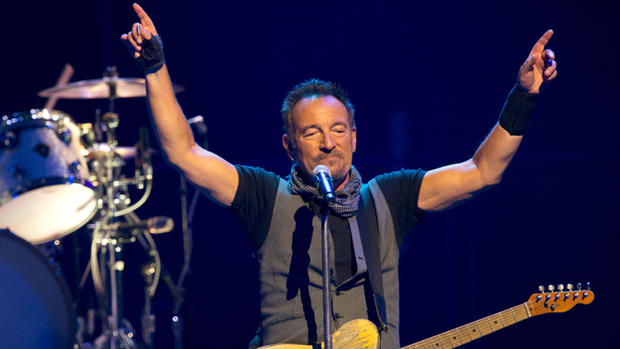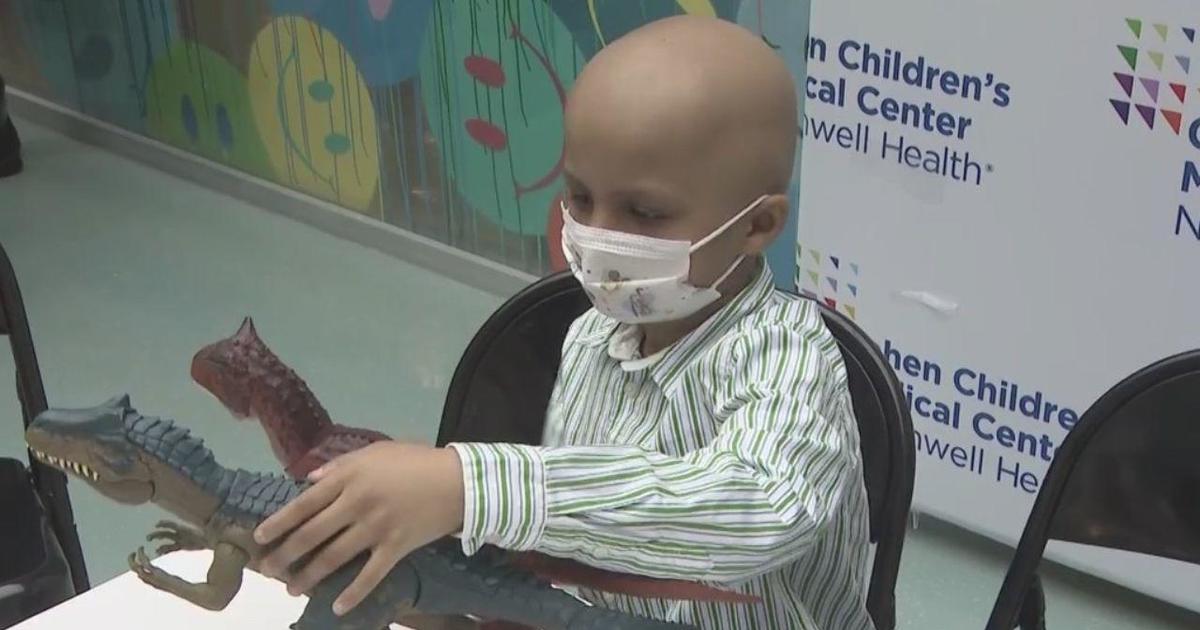Springsteen's Autobiography Leaves Readers Hungry To Know More About The Boss' Life, Career
By Richard Neer
WFAN
Bruce Springsteen's autobiography "Born to Run" (Simon and Schuster, 2016) is satisfying on many levels. But if you are expecting a tell-all that gives deep insight into his songs and relationships, you won't find it to be the focus of this book.
You'll learn what it means to be a quintessential rock 'n' roller during the genre's most fertile period. There are keen observations on stardom and the responsibility it holds for this most conscientious practitioner. But he does pull punches, which oft times is commendable and generous but leaves you wanting to know so much more. He is painfully honest in some areas; in others, he leaves the reader guessing.
Bruce and I go back to the early '70s, when he used to call me when I did overnights on WNEW-FM. I've hosted many of his concerts, both live and on the radio. We haven't spoken at all for some time, which I regret, but he belongs to the world now.
It must be said first that he has definitely found a powerful voice as an author. He may have used an editor, but the words are clearly his own and not those of a ghost writer. The writing borders on poetry, especially the vivid recollections of his early years. Those passages are dense and colorful. They deal with his youth in Freehold and at the New Jersey shore, and these are the richest chapters. A baby boomer growing up Catholic in suburban America in the '50s and '60s, tales of his early family life resonate with crisp detail.
Springsteen was an outsider, a kid who never really fit in. Whereas so many adults have "mommy issues," Bruce had "daddy issues," which continue to this day. Douglas Springsteen was a bitter and distant man who left Bruce with a distorted view of what it meant to be a husband and father, in fact his whole definition of masculinity. One of the most horrifying stories is how Springsteen was severely injured in a motorcycle accident. His father, who hated Bruce's long hair, sent a barber to the hospital to shear it off while the boy was incapacitated. The alternating neglect and rage from his dad is a continuing thread throughout his life. It contributed heavily to the failure of his first marriage, for which Bruce shoulders the entire responsibility.
There's a strange dichotomy, though. In the later chapters, there is a vagueness, which becomes problematic. He hints that he's done bad things, but fails to cite specific instances that describe his struggle. He goes easy on his foes, making it hard to glean exactly why he had such major problems with them. He writes lovingly about Little Steven Van Zandt and Clarence Clemons, but it is absent particulars. For example, he talks about Steven leaving and subsequently re-joining the E Street Band, citing creative differences without spelling out what those were, other than Bruce's insistence on complete control. He showers wife Patti with rightly deserved praise for holding the family together through his own periods of craziness, but doesn't tell the reader some of the destructive things he actually did to make it more palpable.
Even though he has disavowed the term "The Boss," it is a most appropriate nickname. He makes it clear that he is a solo artist and demands complete control. Democracy doesn't work for him in the context of a group. He resents any unsolicited creative input from his players and indeed considers them employees. He compensates them generously and expects complete loyalty and subservience in return.
His lecture to young Jake Clemons is harsh and egotistical. It's something you might imagine a dictatorial football coach preaching to his squad. But it serves to put everyone on notice that he will settle for nothing but the best on his terms. On an artistic level, the results speak for themselves. But it is frustrating to read how he endlessly tweaked every recording to standards that approach insanity. It reaches a point in the early '80s when, after selling millions of albums, he's broke, largely due to this over indulgence.
As the book goes on, Springsteen's evaluation of his own talent sharpens. He allows that he doesn't have a great voice, referencing Bob Seger and Rod Stewart with envy. He posits that in order for his "magic" to work, his diverse skills all need to operate at optimal force. The whole must be greater than the sum of his parts. To wit: He realizes at century's turn that he no longer can make great records on his own and finally seeks outside help. But he does understand the dynamics of his live show better than anyone and works tirelessly to hone them.
Like most artists, he prefers his audience to glean what they will from his music, rather than explain exactly what he meant to convey inside individual songs. He'll give you overarching themes on a few, but that's all. There's also little background on how most of them came to be. He does make a point to explain that "American Skin" was not a screed against the police, but a plea for more understanding of his fellow man's problems. He highlights some of the concerts he considers most meaningful, but this is not a chronicle of the thousands of shows he's done; thankfully he leaves that to his fans.
His later work has not been accepted by the record-buying public at anywhere near the level it was 30 years ago. Realistically, because his audience spans six decades, it's hard to find themes and sounds that can appeal to such a wide range. He believes his more recent music to be underrated, largely because the lyrics are relevant on bigger issues. That may be, but most fans seek soul-burning production and instantly memorable choruses. Strong lyrics may stick in the memory and leave a lasting impression, but the initial, visceral feel of an earth-shattering sonic attack is crucial to rock 'n' roll.
Although he is still capable of those highs, they have been in shorter supply.
He has never been tamed in "cages on Highway 9" or anywhere else. Even now, he craves the freedom of time alone, evidenced by his solitary motorcycle journeys to the places of his youth. He tells of extended bouts with depression and cites how psychotherapy and prescription drugs have helped him over the last 30 years. You get the sense he'll never stop touring until he is physically incapable. His most recent shows have gone over the four-hour mark, astounding for any artist, much less for a man in his late 60s.
He loves what he does, and we love him for it. This book does nothing to diminish that, and it in many ways enhances his legacy.
Richard Neer is a sports talk show host on WFAN in New York and the author of "FM, the Rise and Fall of Rock Radio," in addition to three novels, the latest of which, "Indian Summer," was released this month.




